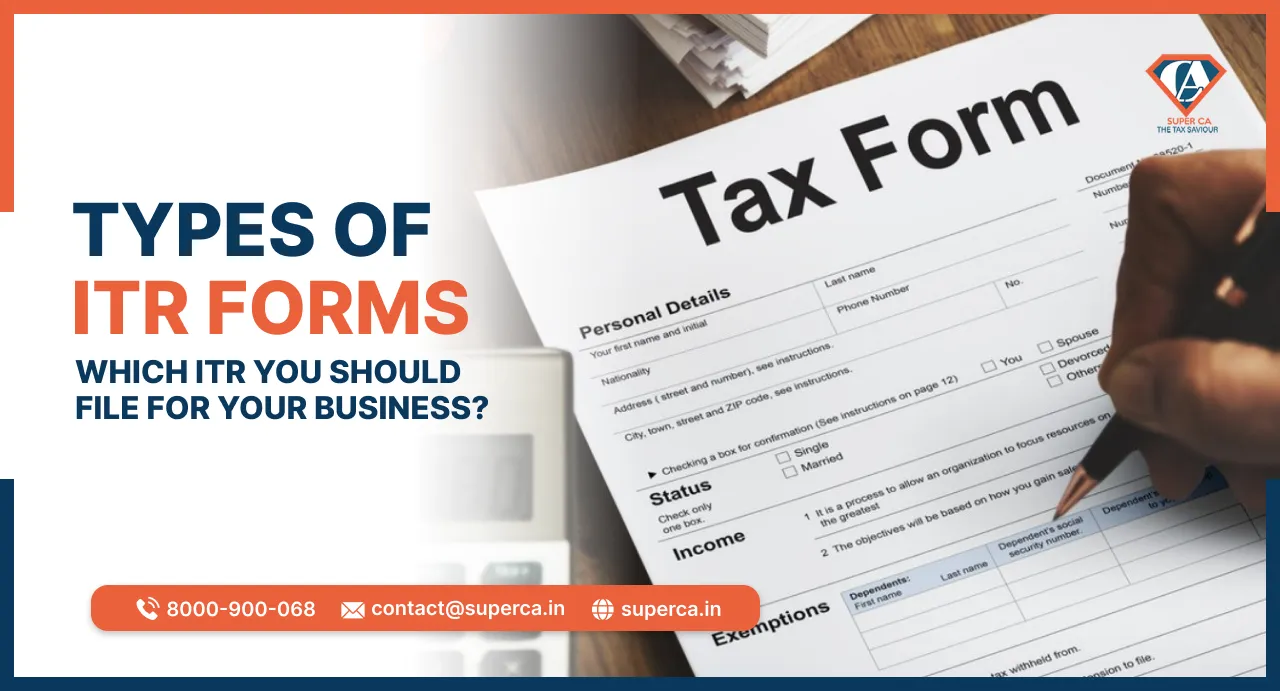Types of ITR Forms- Which ITR You Should File for Your Business?


The income tax return is the process by which taxpayers can avail IRS with reports about the amount of income that they earn and the tax payments. An income tax return needs to be filed either on or before the stipulated time. The method that applies to a taxpayer for filing of ITR is determined by the class to which the taxpayer belongs, like individual, corporation, etc. Also, the ITR is chosen on the basis of existence, overall income and the type of income he earns.
Before proceeding to file an ITR, the taxpayer needs to assess his tax liability and then make payments. The taxpayer should also go through 26AS Form on TDS and other taxes before filing his ITR. Form 16 is the generally used form in order to fill out the details of income and deduction statements.
The different types of ITR have been explained below:
The different types of forms that a taxpayer needs to fill in order to file an ITR are explained as follows:
|
ITR |
Eligible candidates |
Ineligible Candidates |
|
ITR-1 |
Those individuals who possess the Ordinarily Resident status and have a total income of up to Rs 50 lakh. Those who earn income from the sources like wages, a single-family residence, and other sources of income up to Rs 5,000; This form represents the equivalent income earned by a single person like a partner or infant, and which is combined in the hands of the taxpayer. |
Non-residents and HUF; Residents whose net income exceeds Rs 50 lakh on a regular basis; The director of a company; Having unlisted equity investments; facing losses under “profits from house property”; Earning revenue from abroad and having property in abroad; |
|
ITR-2 |
Non-residents / Residents but Not Ordinarily Residents / Ordinarily Residents/HUFs; Those with a net income of over 50 lakh rupees; The director of a company; investment in stocks that are not traded publicly; Having multiple sources of income like wages, multiple house properties, capital returns, and others; Having revenue from sources situated in abroad and properties located in foreign |
Individuals and HUFs who have a source of income from either a company or a career |
|
ITR-3 |
Individuals and HUFs who have a commercial or professional income(includes firm partners) |
Individuals and HUFs who do not have a source of professional or commercial profit |
|
ITR-4 |
Individuals or HUFs or firms (except LLPs) who calculate their technical or corporate profits on a “Presumed Basis” |
Any individual who serves as the director of a company or has stock shares that are unlisted |
|
ITR-5 |
Any person who is not an entity or HUF or a corporation who files an ITR-7 |
An individual, an HUF or a corporation can file ITR-7 |
|
ITR-6 |
All the businesses except for the expressly omitted ones |
Those companies who want to be let out from the payment of taxes on charitable trust revenue |
|
ITR-7 |
Those who can file ITR-7 are a charitable or religious trust, a political group, a scientific research organisation, a news agency, a trade union, a hospital, a college or a university or an NGO and more related organisations |
No other type of Taxpayer is there |

|
Essential LLP Registration Documents: A Complete Checklist for Entrepreneurs Author: Rahul Singh 04 Apr, 2024
|
Get inspired by these stories.